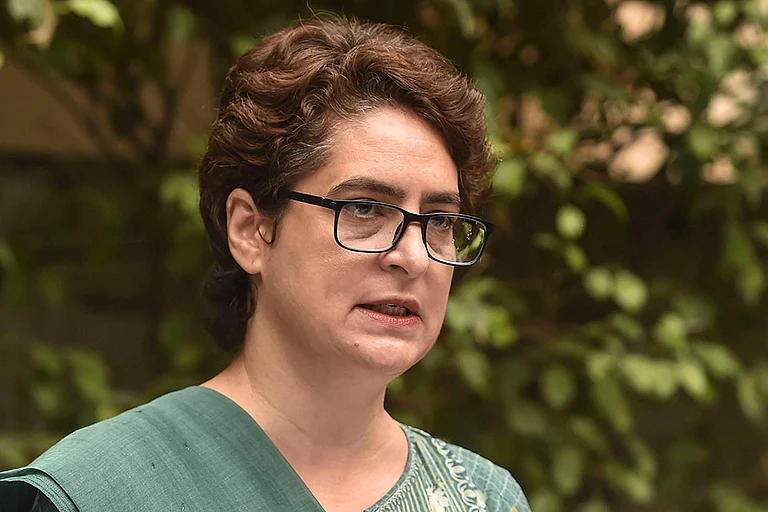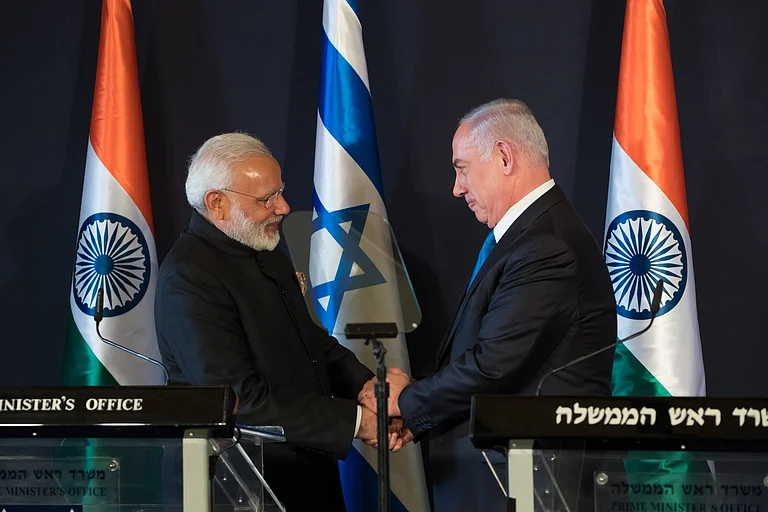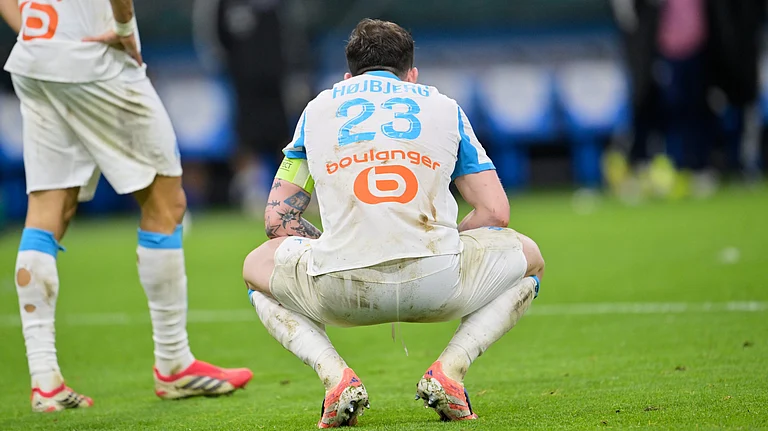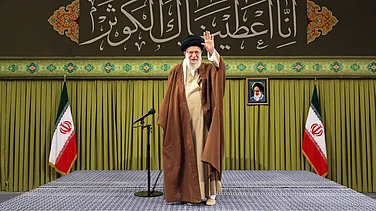
Habib, who captained the all-women’s Gaza flotilla in 2016, was recently detained again while leading The Conscience as part of the Freedom Flotilla Coalition.
She says witnessing suffering compels her to act: “Once your eyes have been opened, it’s very difficult to close them again.”
Despite risks and detentions, Habib vows to continue sailing in solidarity with Palestinians until the Gaza blockade is broken.
“For believe me! — the secret for harvesting from existence the greatest fruitfulness and the greatest enjoyment is: to live dangerously! Build your cities on the slopes of Vesuvius! Send your ships into uncharted seas! Live at war with your peers and yourselves!”-Friedrich Nietzsche
In a world bound by conventions, a rare few like Madeleine Habib choose to live dangerously, break the mold, and chart their own course. These extraordinary individuals challenge norms, confront power, and stand for justice once thought unassailable, reminding us that true rebellion is always being unapologetically yourself.
A Master Mariner from Tasmania with Egyptian heritage, Habib has spent much of her life navigating some of the world’s most remote and volatile waters, turning her maritime expertise into a vessel for humanitarian action. Habib’s decades-long sea-faring career has taken her across continents and conflict zones alike. She began her sea-based activism on the famous Greenpeace protest boats which, since 1971, have used non-violent direct action to oppose and publicise the secrets held by international waters, such as the testing of nuclear weapons in the pacific and the destruction of the world’s marine life.
As an experienced captain and long-time activist, Habib made history in 2016 when she captained the Zaytouna-Oliva, the first all-women’s boat to Gaza. She returned to the waters this year as captain of The Conscience, part of the Freedom Flotilla Coalition, sailing in solidarity with the people of Gaza. On October 8, the vessel was intercepted, and Habib—along with her fellow passengers—was detained at Israel’s Ketziot Prison for “illegally seeking to break Israel’s naval blockade on Gaza.” She was released four days later, on October 12.
In this exclusive interview, Habib speaks with Abhimanyu Bandyopadhyay about her life at sea, her activism, and bearing witness to the ongoing genocide in Gaza.
You were previously intercepted and detained by the Israeli Defense Forces during your 2016 voyage to Gaza. Fully aware of the potential risks, what made you decide to embark on this mission once again?
I do feel very strongly about having a sense of social responsibility. I feel like if your eyes have been opened and you’ve seen the suffering or the horrors that people face, it’s very difficult to close your eyes again. So once you’re aware of the brutality that’s going on in Palestine it just brings out something in you that makes you want to address the situation and do what you can to improve it. The Palestinian people have an undeniable right to their territorial waters. They deserve a sea corridor, just as any other coastal nation does. Yet Gaza has been under a naval blockade for over seventeen years.
There have been numerous flotillas which have attempted to break this siege and we will continue to try to break this siege until the people of Palestine have the right to their waters. Yes, I have been kidnapped by the Israeli forces before and this time too we knew that there was a chance that we would be intercepted, but that’s not enough to stop us. I mean, we shouldn’t be too easily put off just because we know that there’s a potential barrier there. We’ll keep sailing, keep resisting, and keep standing with the Palestinian people to show the rest of the world that the actions of a few committed civilians can actually change the status quo.
How did you get involved in this mission?
At the time, I was working in the Mediterranean, serving aboard a rescue ship. So when the Global Sumud Flotilla initiative began, I was already nearby. It was hard for me not to get involved in this mission, because through this sailing we needed to create a humanitarian corridor so that more vessels would continue to sail towards Gaza. I had previously worked with the Freedom Flotilla Coalition, so this felt like a natural continuation of that commitment. More than anything, I simply wanted to help in whatever way I could.
Can you take us through what happened on the day of the interception? Did you have any sense that something like that might happen?
The Israeli occupation forces have a long history of boarding humanitarian vessels, so we were fully aware that interception was a real possibility and had prepared accordingly. In fact, that very day, Israeli radio had broadcast a report announcing plans to intercept our ship. We were about 130 nautical miles from Gaza, but our vessel was quite fast, which meant it could reach the coast relatively quickly. That’s why they tend to intercept larger, faster ships farther out at sea. They came for us in the middle of the night, in a heavily trafficked zone near the entrance to the Suez Canal.
You can imagine what that was like — total darkness, suddenly surrounded by three helicopters above and multiple naval vessels closing in around us. They stormed the bridge carrying heavy weaponry, aiming at us with laser lights, demanding that we stop the ship and give up the control of the vessel. It’s a very intimidating circumstance to be in, but it’s not my first time. And we had done plenty of training. We’re very experienced in nonviolent direct action. So I think we acted really well as a team and conducted ourselves safely. But it is intimidating to be surrounded by people wearing balaclavas and bulletproof vests, carrying heavy arms and shouting at you.
What was the most intense moment during the capture by the IDF?
Well, the story’s not really about our capture by the IDF, rather it’s about the collective effort to break the siege of Gaza. It is obviously a criminal act to intercept human rights activists on the high seas but it’s nothing in comparison to the war crimes that Israel is committing every single day. Of course, being jailed is uncomfortable. It’s a deprivation of freedom, and there’s nothing pleasant about it. The authorities tried to intimidate us — they harassed us, confiscated our personal documents, and attempted to wear us down mentally. But it wasn’t ‘torture’. I’ve been detained several times before for my activism, and this was a fairly standard detention process. Torture is what’s happening to Palestinians who have been imprisoned for years without trial. That’s where our attention should be. I prefer not to glorify the interception itself because that kind of marks the mission as a failure. It’s not the part of the story that I want to focus on.
What kind of preparations the flotila passegers have been through for this journey ?
We are all trained nonviolent activists. We practice scenarios, we establish safe zones on board the ship. Since the beginning we had a very clear communication strategy and of course we did intend to offer any resistance. Resistance against one of the most heavily armed militaries in the world would have been futile and could risk the lives of people on board. However, we proceeded in a nonviolent manner, taking direct action and doing everything that we can to maintain our course to Gaza.
Can you tell us about your experience with the passengers aboard the flotilla?
The sense of community came together very quickly. Before boarding, we spent a couple of days in Italy for training and preparation. Everyone was busy getting the ship ready, attending final briefings, and going through sessions on the legal implications of the mission. We also underwent non-violence training, learned how to live and work together in close quarters, and deepened our understanding of the mission’s political and humanitarian context. Once onboard, everyone naturally fell into rhythm. When you’re at sea, with nowhere else to go and no one to call for help, camaraderie builds fast . For many, it was their first time joining such a mission, but they adapted remarkably well. Life onboard wasn’t easy, people slept on the floor, there were no showers, no privacy, and quite a few struggled with serious seasickness. But despite every discomfort, what kept everyone going was an unshakable determination to reach the shores of Gaza.
What happened to CONSCIENCE?
The ship has been seized along with more than 50 yachts. So there is a huge fleet of humanitarian vessels that are privately owned that have been illegally seized in international waters by Israeli forces and they’re still holding those boats. So that is completely in contravention of international law. We did absolutely nothing wrong; yet they have stolen our ships, and holding them without any justification. Those vessels must be returned. As for the aid, we still have no information on its whereabouts. It certainly hasn’t reached the people of Gaza, despite Israel’s claim that it would be distributed. We know for a fact that it didn’t happen.
How did you first become involved with the Palestinian Solidarity Movement? What drew you so deeply to this cause?
I have a deep rooted Middle Eastern heritage, though not many are aware of it. My father is from Egypt, and during my younger years I travelled extensively across the Middle East. We grew up hearing about the brutality inflicted on Gaza by the state of Israel since childhood, so the issue was never distant for me. When I first visited Palestine in 1989, I was deeply struck by the stark disparities and human suffering that existed there. Once you’ve seen that kind of reality, it’s impossible to turn away — it just brings out something in you that makes you want to address the situation and do what you can to improve it.
So when the opportunity arose in 2016 to captain the all-women’s flotilla aiming to break the naval blockade, I felt it was a meaningful act of service to the people of Palestine. It remains one of the things I’m most proud to have been part of.
What are your plans now? Would you join another flotilla to Gaza?
I try to spend as little time on land as possible — the sea gives me purpose, and it’s where I can make a difference. Plans are already underway for another flotilla to Gaza this spring, and I would be honoured to join it. That said, my greatest hope is that no such mission will ever be necessary again. I also wish we get back the 15 boats the Israeli authorities have illegally seized. This genocide must end. And if governments won’t act, civilians must. That’s why the Global Sumud Flotilla matters, it’s a collective act of conscience and resistance that stake a claim on the right side of the history. Our boats may be fragile, but our resolve is stronger than any blockade. Until then — never stop thinking about Palestine.






















